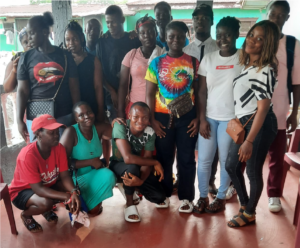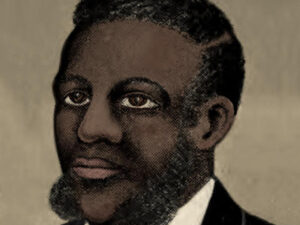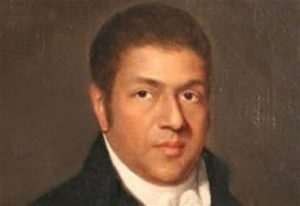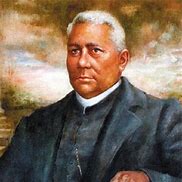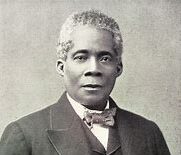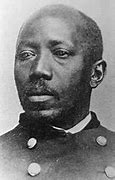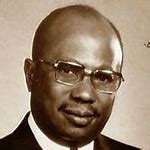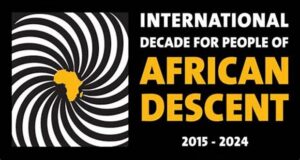 April 16-19, 2024 is the Third Session of the Permanent Forum on People of African Descent (PFPAD), which was created by the United Nations just under two years ago. PFPAD has held two Sessions already, one in Geneva, Switzerland in December 2022 and another in New York City in June 2023. This Third Session will be held in Geneva, Switzerland from April 16-19, 2024.
April 16-19, 2024 is the Third Session of the Permanent Forum on People of African Descent (PFPAD), which was created by the United Nations just under two years ago. PFPAD has held two Sessions already, one in Geneva, Switzerland in December 2022 and another in New York City in June 2023. This Third Session will be held in Geneva, Switzerland from April 16-19, 2024.
Our interest in this Third Session stems from one of the “Spokes” in the “Spokes of the Wheel” diagram of the Maryland Pan Afrikan Cooperative Coalition (https://kuumbareport.com/spokes-of-the-wheel/maryland-pan-african-cooperative-coalition-mpacc/) that has served as sort of an unofficial logo for the Cooperative Coalition: International Pan Afrikan Activism. Many of the issues we face on the ground where we live stem from decisions that are made by heads of state and by international bodies like the United Nations, African Union, and Organization of American States that deal with the human rights of the citizens of countries, of ethnic and religious minorities, of women and children, and of migrants. Misdeeds by states (apartheid in South Africa and the genocide in Darfur are two examples) can often be mitigated and finally brought to a halt by concerted and persistent action by international grassroots activists, either through protests at embassies or presentations at international conferences and sessions such as those held by the Permanent Forum. Thus, this Third Session in Geneva is directly related to our work as a Cooperative Coalition to bring a variety of forces to bear in a combined, cooperative effort to improve and enrich the lives of Afrikan People.
Sis. Tomiko of Aging People in Prison Human Rights Campaign (APP-HRC), SOLITUDE and the Maryland Pan Afrikan Cooperative Coalition (MPACC) is leading a delegation of experts to the Third Session, concentrating on issues of Mass Incarceration, Reparative Justice and Women of Afrikan Descent. She led this same panel of experts to the Organization of American States (OAS) Inter-American Commission on Human Rights (IACHR) in Washington, DC last November, and her panel made quite an impression on the OAS Commissioners. Our prayer to the Creator and the Ancestors is that they will guide her panel at this Third Session so they can make a similar strong impression on the Third Session of PFPAD and strike yet another blow for Afrikan People.
The following come from the Web sites that are linked below, in case you want to know more about the Permanent Forum on People of African Descent (PFPAD) and the Third Session taking place next week in Geneva, Switzerland. Each session listed below includes links (full Web addresses that can be copied and pasted to your browser in case the link doesn’t work) to learn more about the Sessions and to arrange to attend the Sessions over the Internet.
(1) This first link is to general information about the Third Session of PFPAD. You’re invited to check the link for more detail on this Session:
Third session of the Permanent Forum on People of African Descent | OHCHR
https://www.ohchr.org/en/events/sessions/2024/third-session-permanent-forum-people-african-descent
Third session of the Permanent Forum on People of African Descent
DATE: 16 – 19 April 2024
LOCATION: PALAIS DES NATIONS OF THE UNITED NATIONS OFFICE IN GENEVA, SWITZERLAND
The Office of the United Nations High Commissioner for Human Rights (OHCHR) is pleased to announce that the third session of the Permanent Forum on People of African Descent will take place from 16 – 19 April 2024 in the Palais des Nations of the United Nations Office in Geneva, Switzerland.
(2) There are also several specific Side Events taking place during the Third Session. This is one of the early events of the week. Our own Sis. Tomiko is helping organize this Side Event for Aging People in Prison Human Rights Campaign, which will take place on Tuesday, April 16:
Third session of the Permanent Forum on People of African Descent: Side event – Global Mass Incarceration a… (sched.com)
https://thirdsessionpfpad2024.sched.com/event/1br8X/side-event-global-mass-incarceration-and-reparative-justice-a-roundtable-discussion
GLOBAL MASS INCARCERATION AND REPARATIVE JUSTICE: A ROUNDTABLE DISCUSSION
Date: 16 April 2024, 18:15 – 19:45 (6:15 pm – 7:45 pm Geneva Time; 12:15 pm – 1:45 pm Eastern Time)
Organizers:
- Geneva Graduate Institute-Gender Centre;
- Aging People in Prison Human Rights Campaign/SOLITUDE
Language of the event: English
Description of the event: This roundtable discussion will explore the issue of mass incarceration of African descendent women and women of color on a global scale. Our speakers will shed light on the historical links between slavery, colonialism and mass incarceration, and discuss activist struggles and the global reparations movement against the overarching carceral landscape of the world.
Location: Auditorium A2, Maison de la paix, Geneva Graduate Institute
https://www.graduateinstitute.ch/communications/events/global-mass-incarceration-and-reparative-justice-roundtable-discussion
PANELISTS
- Efia Nwangaza, Malcolm X Center for Self Determination
- Tasseli McKay, Duke University
- Avon-Hart Johnson, Walden University
- Tomiko Shine, Aging People in Prison Human Rights Campaign
- Nivedita Joon, Geneva Graduate Institute
Moderation: Nicole Bourbonnais, Geneva Graduate Institute.
This is a hybrid event. Please register below to attend the event online or in person.
REGISTER TO ATTEND THIS EVENT ONLINE:
Register: https://iheid.webex.com/weblink/register/r53c15d520c17538a2603b0be9f91b69f
Person to contact:
- Nicole Bourbonnais; Director Gender Centre-nicole.bourbonnais@graduateinstitute.ch
- Tomiko Shine; Director Aging People in Prison Human Rights Campaign/SOLITUDE, dcapphrc@gmail.com
(3) Sis. Tomiko is also organizing the following discussion on Friday, April 19:
Third session of the Permanent Forum on People of African Descent: Side event – The Second International De… (sched.com)
https://thirdsessionpfpad2024.sched.com/event/1aS8k/side-event-the-second-international-decade-challenge-protecting-women-and-girls-of-african-descent-after-400-years-of-state-violence
The Second International Decade Challenge; Protecting Women and Girls of African Descent after 400 years of State Violence
Date, time and time zone of side event: Friday, April 19th, 9:45 – 10:45 am Geneva Time (3:45 am – 4:45 am Eastern Time)
Sponsoring organization(s) or entity/ies:
- WAPB-thewapb.org -The WAPB is a Community Policing and Human Rights social entrepreneurship whose mission is to become the premier organization providing services, education, and training to eradicate violence against women during policing encounters, including female officers.
- APP-HRC/Solitude –Solitude (wordpress.com) – A international human rights research consortium focusing on black women of African descent across the Diaspora building on a foundation of reparative justice.
Language(s) in which the side event will be held: English
Description of the side event:
This side event/workshop will look at the qualitative and quantitative cost of state violence through various institutions, laws, and policies to the black woman of African descent over generations. The panelists will also provide reparative justice models and recommendations that protect and re-define the African woman’s womb as a renewed space of generational healing, wealth, and nation building.
Contact details of the organizer: Crista Noel, cnoel@thewapb.org
Sis. Tomiko: Cultural Anthropologist and Mitigation Specialist
Founding Director: Aging People in Prison Human Rights Campaign
www.apphrc.com
https://m.facebook.com/apphrcusa/
“The seed you plant in love, not matter how small, will grow into a mighty tree of refuge” Afeni Shakur
In Recognition of Black Herstory Month
We remember Anti-Apartheid Icon Winnie Madikizela Mandela, former political prisoner and solitary confinement survivor (1936-2018)
In Recognition of Black History Month
Free Civil Rights Icon and Aging Prisoner
Imam Jamil al-Amin aka H. Rap Brown (incarcerated 2000-Present)

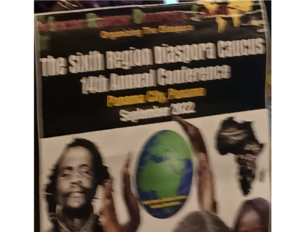 The 2022 SRDC Summit was held from Thursday, September 22 through Sunday, September 25, 2022 in Panama City, Panama. Since SRDC does not yet have an organization in Panama, this amounted to “virgin territory” for our organizing efforts. A number of the hoped-for attendees were not able to secure travel visas to attend the Summit in time, but some of them were afforded the opportunity to connect to the Summit virtually via Zoom. Activists from the Virgin Islands, Costa Rica, The Netherlands, Liberia, the United States and, of course, the host country of Panama were in attendance, with others from the United States, Tanzania, Ghana, Guadeloupe and other locations connecting virtually.
The 2022 SRDC Summit was held from Thursday, September 22 through Sunday, September 25, 2022 in Panama City, Panama. Since SRDC does not yet have an organization in Panama, this amounted to “virgin territory” for our organizing efforts. A number of the hoped-for attendees were not able to secure travel visas to attend the Summit in time, but some of them were afforded the opportunity to connect to the Summit virtually via Zoom. Activists from the Virgin Islands, Costa Rica, The Netherlands, Liberia, the United States and, of course, the host country of Panama were in attendance, with others from the United States, Tanzania, Ghana, Guadeloupe and other locations connecting virtually.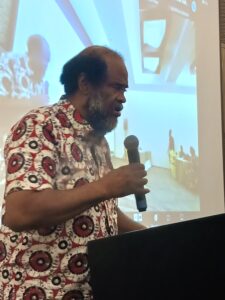
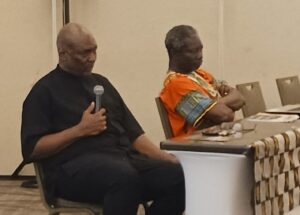
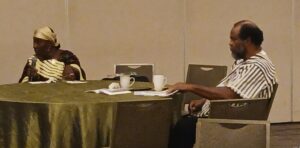
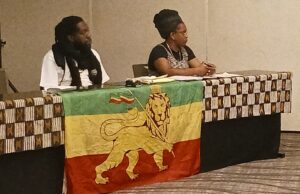
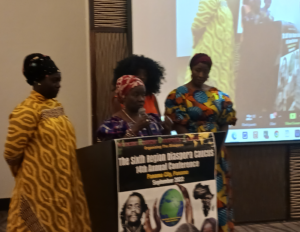
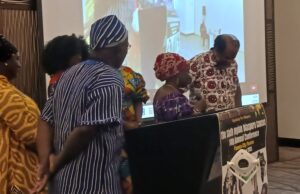
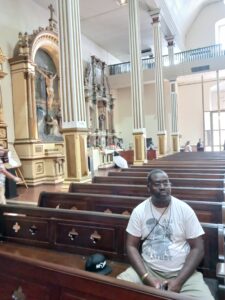
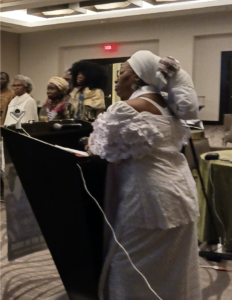
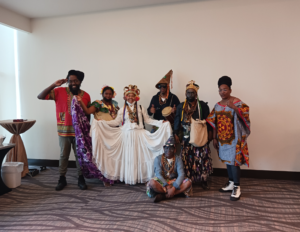
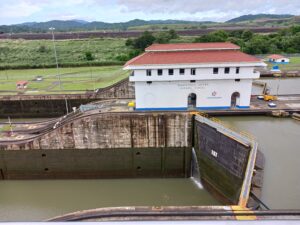
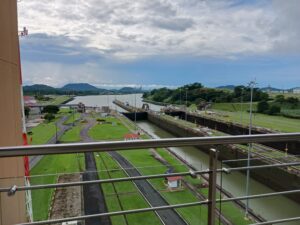
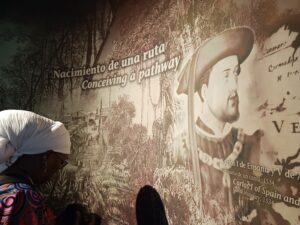
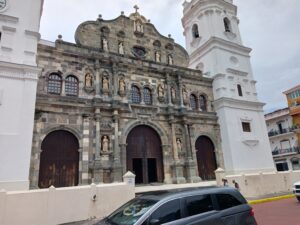
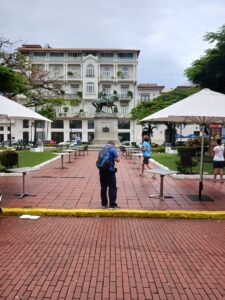
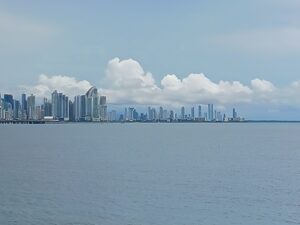
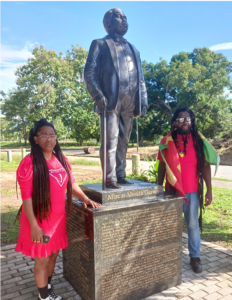
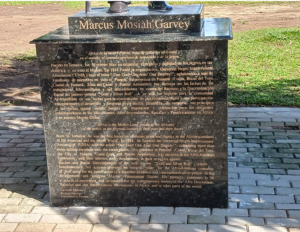
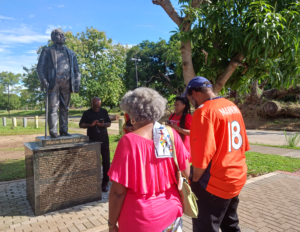
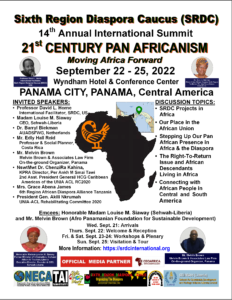 The 14th Annual International Summit of the Sixth Region Diaspora Caucus (SRDC) will be held from September 22 – 25 in Panama City, Panama.
The 14th Annual International Summit of the Sixth Region Diaspora Caucus (SRDC) will be held from September 22 – 25 in Panama City, Panama.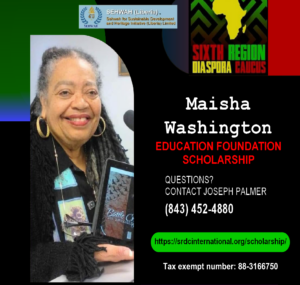 Sehwah-Liberia, Inc. and the Sixth Region Diaspora Caucus (SRDC) are announcing the
Sehwah-Liberia, Inc. and the Sixth Region Diaspora Caucus (SRDC) are announcing the 